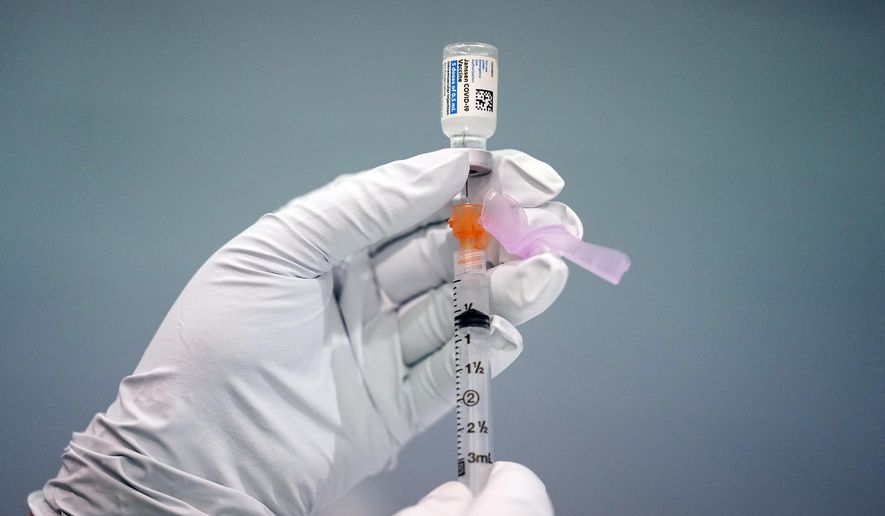Johnson & Johnson said persons who received a second dose of its COVID-19 vaccine enjoyed 94% protection against symptomatic disease, an increase from 74% under a one-shot regimen and a level on par with early studies of two-dose vaccines from Pfizer-BioNTech and Moderna.
The New Jersey-based company said people who received a booster six months after the initial dose saw their antibody levels climb 12-fold after four weeks in clinical studies.
The company will submit its findings to the Food and Drug Administration as government regulators consider whether Americans who received any of the three COVID-19 vaccines months ago need a boost to maintain protection against the fast-moving delta variant.
J&J also said a large real-life study that compared 390,000 people with one dose of the J&J vaccine and about 1.5 million unvaccinated people found little evidence that protection against severe illness is waning and remained 81% effective against hospitalization.
“A single-shot COVID-19 vaccine that is easy to use, distribute and administer, and that provides strong and long-lasting protection is crucial to vaccinating the global population,” said Paul Stoffels, J&J’s chief scientific officer. “At the same time, we now have generated evidence that a booster shot further increases protection against COVID-19 and is expected to extend the duration of protection significantly.”
Roughly 15 million people in the U.S. received the one-and-done J&J vaccine against COVID-19, meaning it accounts for just under 4% of all vaccinations in the country.
Because Pfizer and Moderna account for the lion’s share of vaccinations in the U.S., much of the debate over President Biden’s plan to provide boosters focused on those versions. FDA advisers recently said people over age 65 and in high-risk occupations should receive an additional Pfizer dose.
Some J&J recipients have felt left out in the cold.
Tuesday’s news, offered in a company press release, will bring J&J back into the conversation and give recipients hope their shots are highly effective.
Earlier this year, experts cautioned that J&J’s vaccine — which uses an inactivated virus, adenovirus platform — was tested as a one-shot course against dangerous variants across the world, meaning its lower efficacy reading versus the messenger-RNA vaccines from Pfizer and Moderna should be taken with a grain of salt.
J&J’s study suggests antibodies rose more sharply when the booster was given six months after the first shot, compared to a boost given after two months. Most recipients of the vaccine likely received it in the early to mid-spring, so the timing should line up well for recipients if regulators approve a second dose.
• Tom Howell Jr. can be reached at thowell@washingtontimes.com.




Please read our comment policy before commenting.